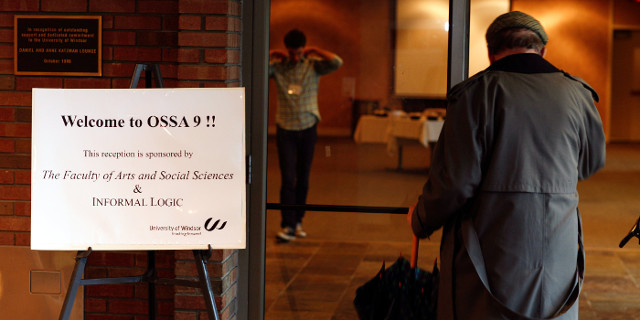
Location
University of Windsor
Document Type
Paper
Keywords
Medical consultation, shared decision-making, pragma-dialectical theory of argumentation, strategic manoeuvring, antibiotics
Start Date
18-5-2011 9:00 AM
End Date
21-5-2011 5:00 PM
Abstract
In recent years, the model of shared decision-making has become increasingly promoted as the preferred standard in doctor-patient communication. As the model considers doctor and patient as coe-qual partners that negotiate their preferred treatment options in order to reach a shared decision, shared de-cision-making notably leaves room for the usage of argumentation in the context of medical consultation. A paradigm example of argumentative conflict in consultation is the discussion that emerges between doctors and their patients concerning antibiotics as a method of treatment for what is presumed to be a viral infec-tion. In this paper, a case of such argumentative conflict is studied, using the extended pragma-dialectical theory to argumentation. It is examined how a patient and her physician manoeuvre strategically in order to maintain a balance between dialectical reasonableness and rhetorical effectiveness, as well as an equilibri-um between patient participation and evidence-based medication, while arguing their case for and against antibiotics respectively.
Creative Commons License

This work is licensed under a Creative Commons Attribution 4.0 International License.
Included in
Conflict and consultation: Strategic manoeuvring in response to an antibiotic request
University of Windsor
In recent years, the model of shared decision-making has become increasingly promoted as the preferred standard in doctor-patient communication. As the model considers doctor and patient as coe-qual partners that negotiate their preferred treatment options in order to reach a shared decision, shared de-cision-making notably leaves room for the usage of argumentation in the context of medical consultation. A paradigm example of argumentative conflict in consultation is the discussion that emerges between doctors and their patients concerning antibiotics as a method of treatment for what is presumed to be a viral infec-tion. In this paper, a case of such argumentative conflict is studied, using the extended pragma-dialectical theory to argumentation. It is examined how a patient and her physician manoeuvre strategically in order to maintain a balance between dialectical reasonableness and rhetorical effectiveness, as well as an equilibri-um between patient participation and evidence-based medication, while arguing their case for and against antibiotics respectively.
